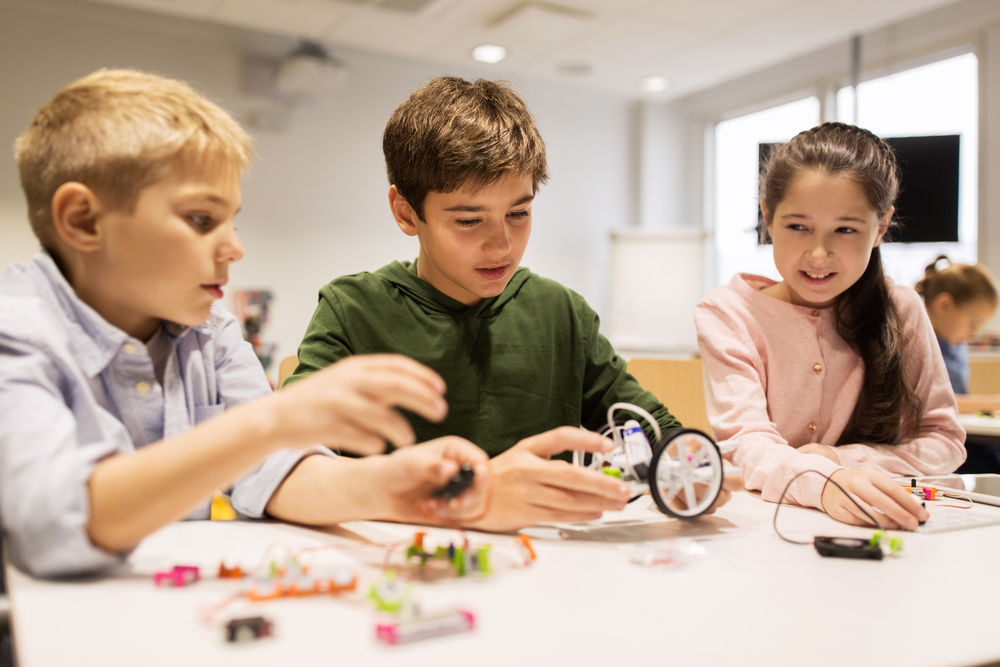Map reading skills Social Studies Worksheets for Ages 5-7
8 filtered results
-
From - To
Enhance your child's geography and navigation abilities with our engaging "Map Reading Skills" worksheets for ages 5-7! Designed to develop foundational map literacy, these fun activities introduce young learners to essential skills like identifying map symbols, understanding directions, and recognizing key landmarks. Each worksheet is crafted to make learning interactive and enjoyable, helping children gain confidence in reading and interpreting maps. Ideal for home or classroom use, these resources align perfectly with early social studies curriculum, promoting critical thinking and awareness of the world around them. Start your child’s journey to becoming a skilled navigator today with our vibrant and educational worksheets!
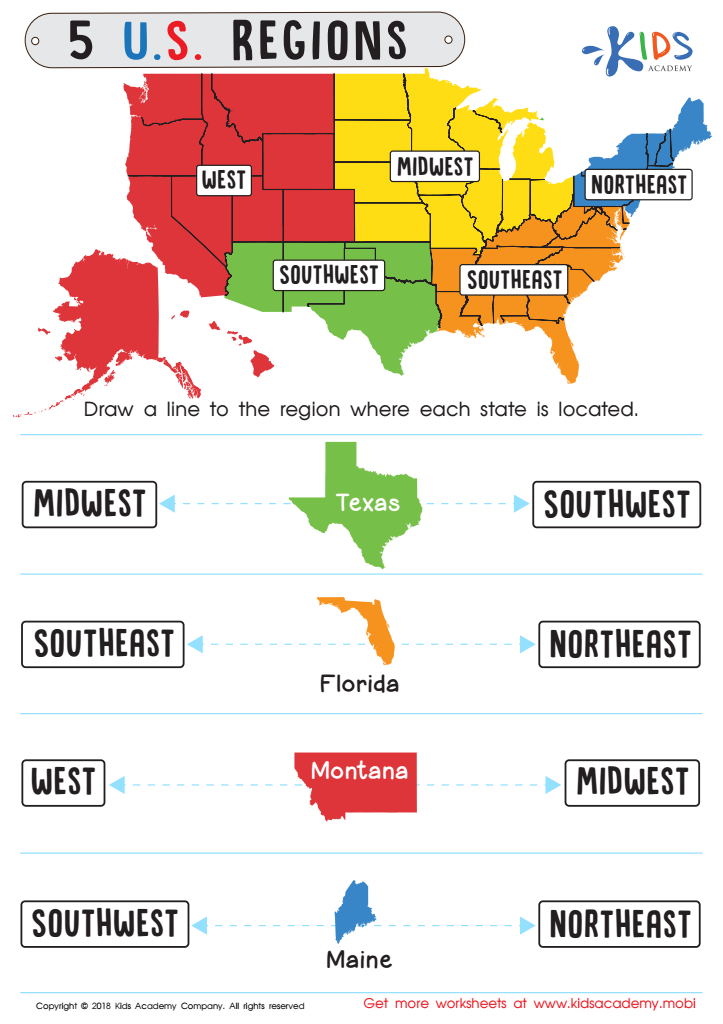

5 U.S. Regions Worksheet
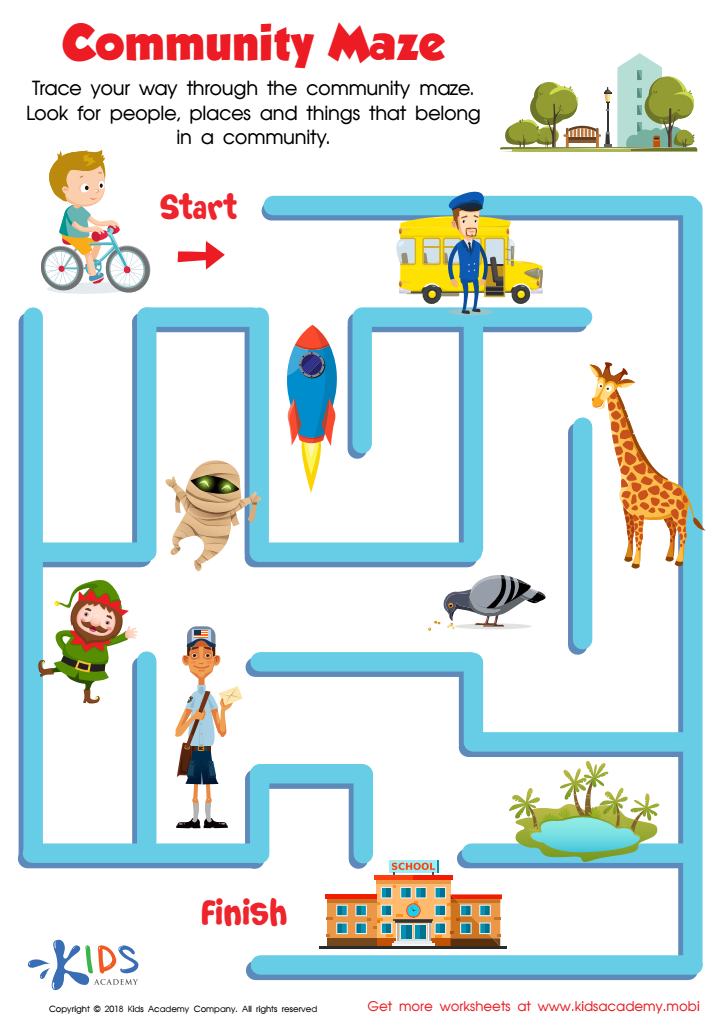

Community Maze Worksheet
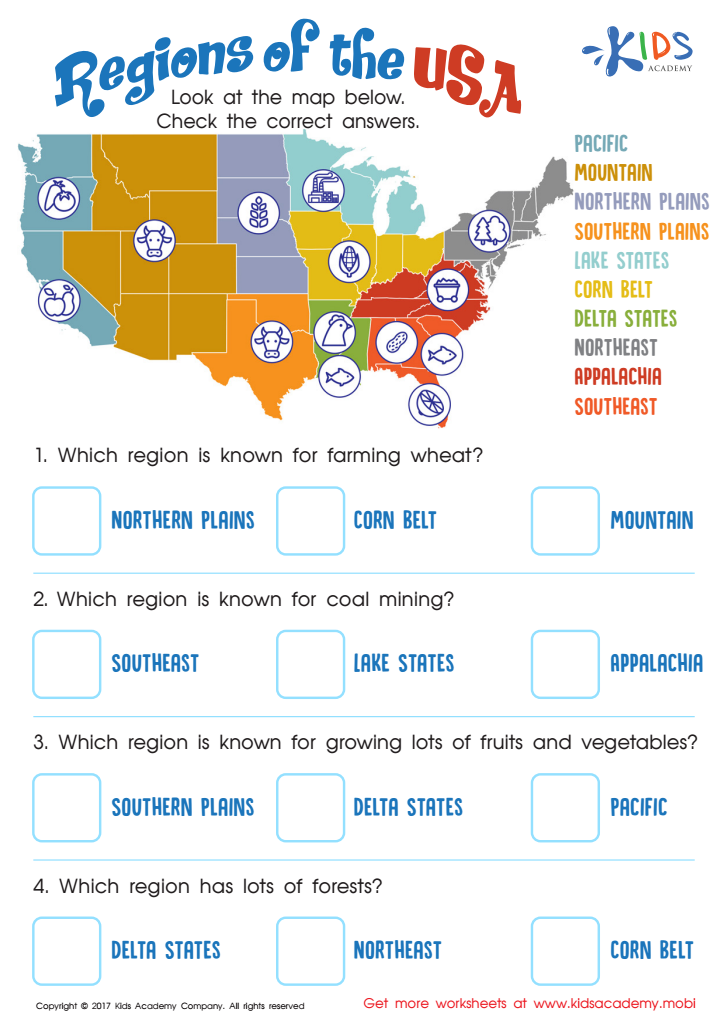

Regions of the USA Worksheet
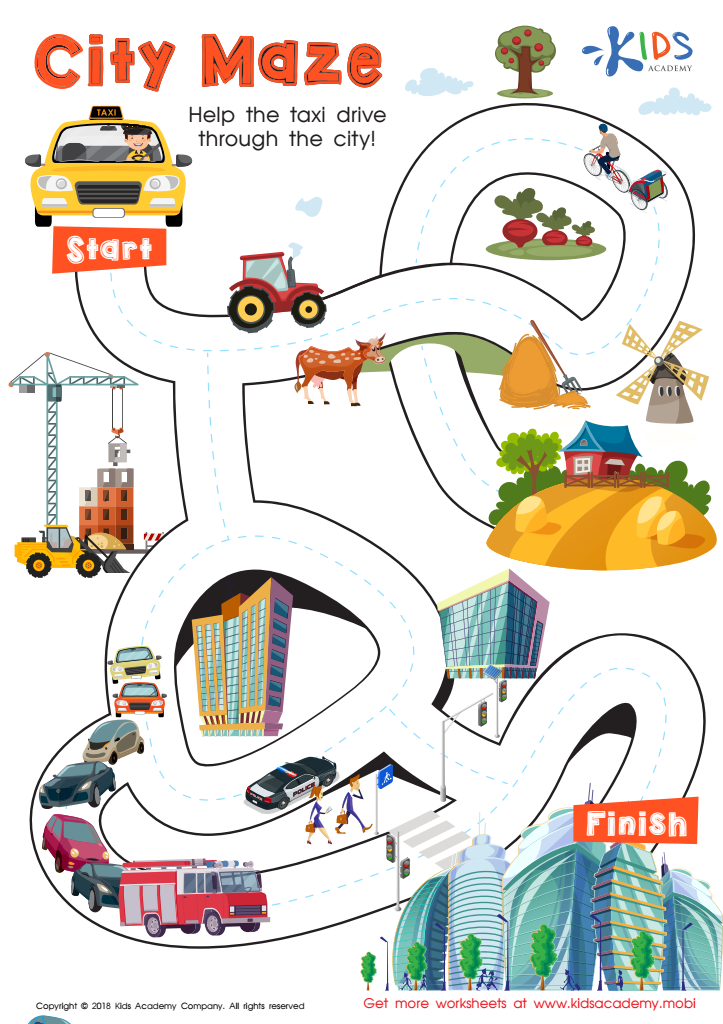

City Maze Worksheet
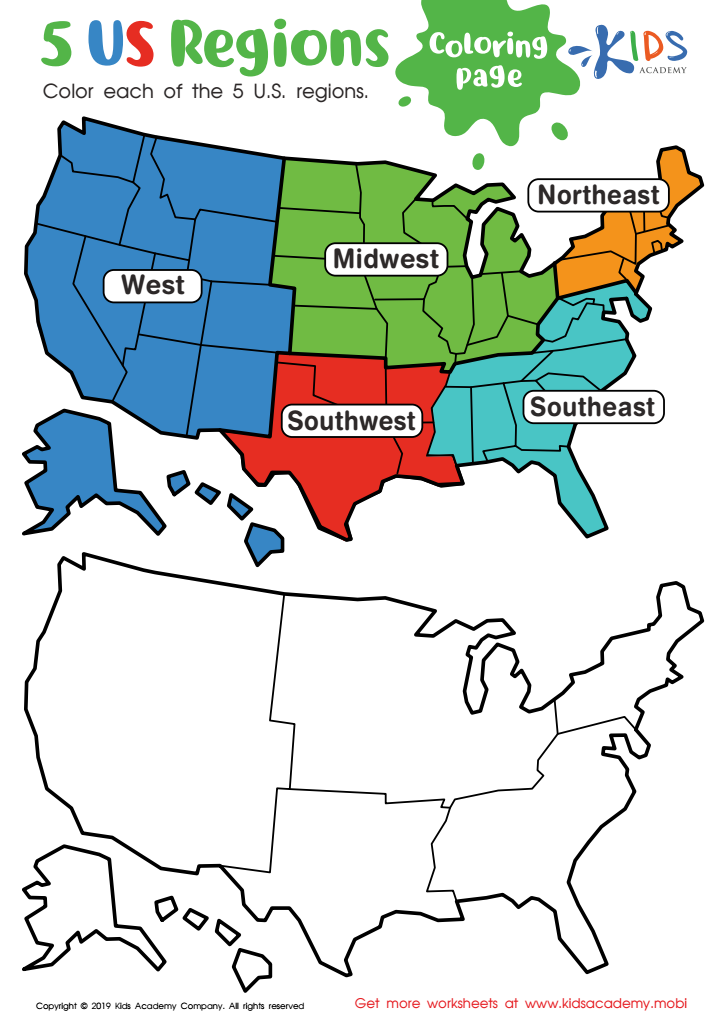

US Regions Coloring Page Worksheet
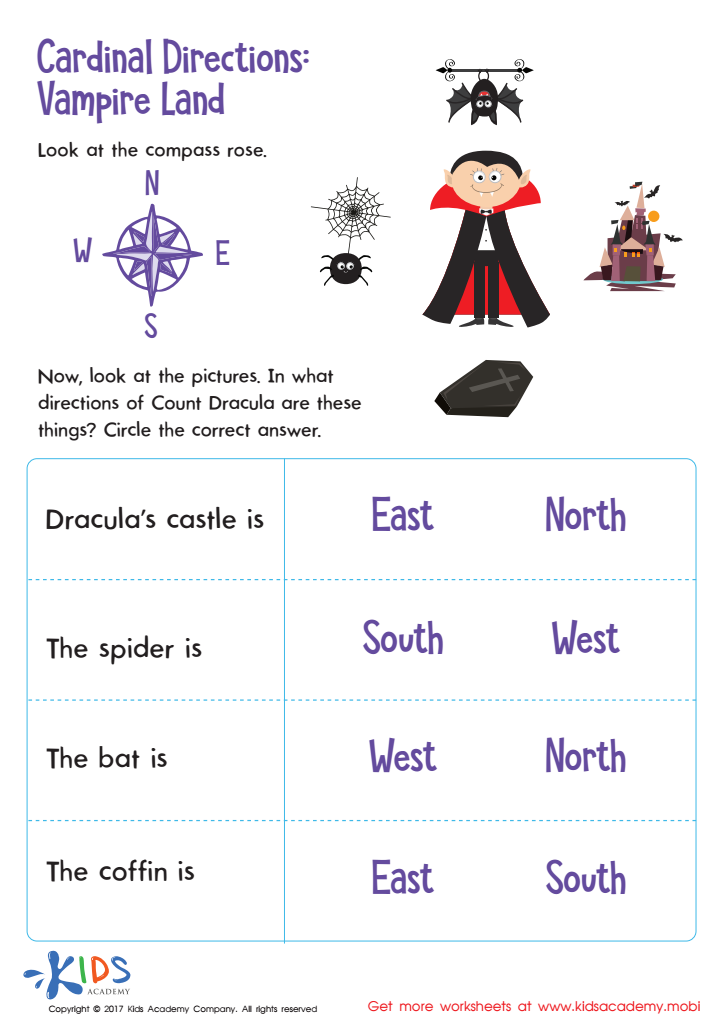

Cardinal Directions Printable
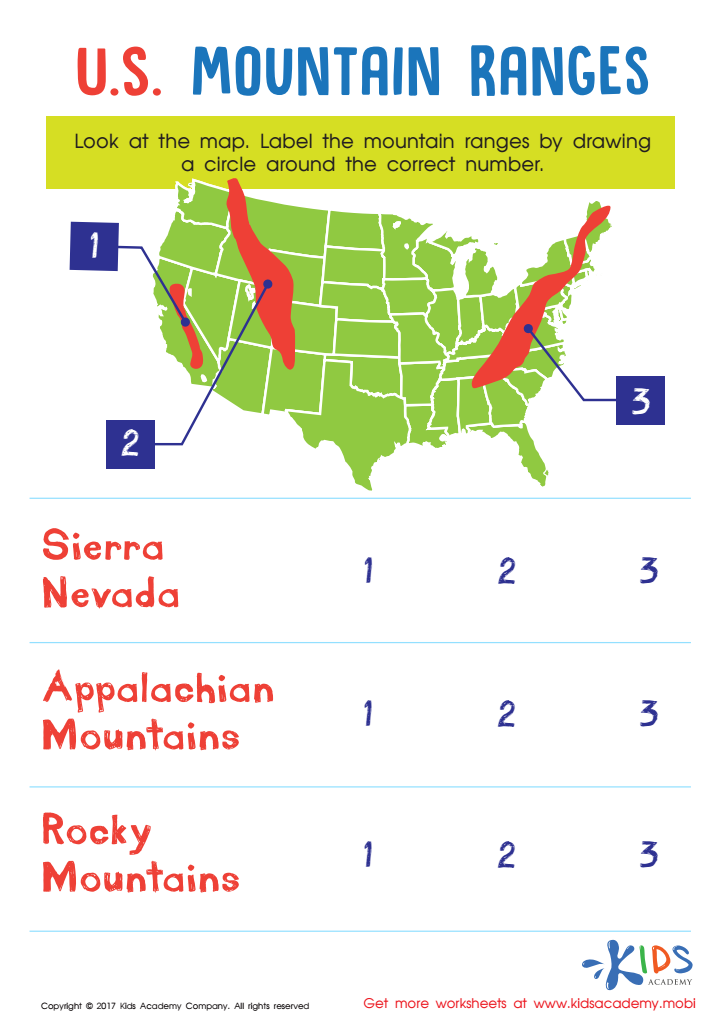

US Mountain Ranges Worksheet


Towns Worksheet
Map reading skills are essential for children aged 5-7 and play a vital role in their social studies education. Early development of these skills fosters spatial awareness, critical thinking, and problem-solving abilities. Understanding basic map elements—such as symbols, legends, and directions—helps young learners navigate and make sense of the world around them.
Parents and teachers should prioritize map reading because it enhances children's understanding of geography and history, allowing them to connect with local and global communities. By learning to read maps, children improve their ability to interpret information, fostering cognitive growth.
Moreover, map reading promotes curiosity about their environment, encouraging discussions about culture, landmarks, and different places. This natural inclination to explore lays the groundwork for lifelong learning and critical engagement with social studies topics.
Incorporating map reading into educational activities supports children's motivation and engagement, making learning active and enjoyable. In doing so, parents and teachers help build informed citizens who are capable of understanding geographical contexts, fitting into social constructs, and appreciating diversity in our increasingly interconnected world. Investing in these skills at a young age is crucial for nurturing a well-rounded, globally aware generation.
 Assign to My Students
Assign to My Students







